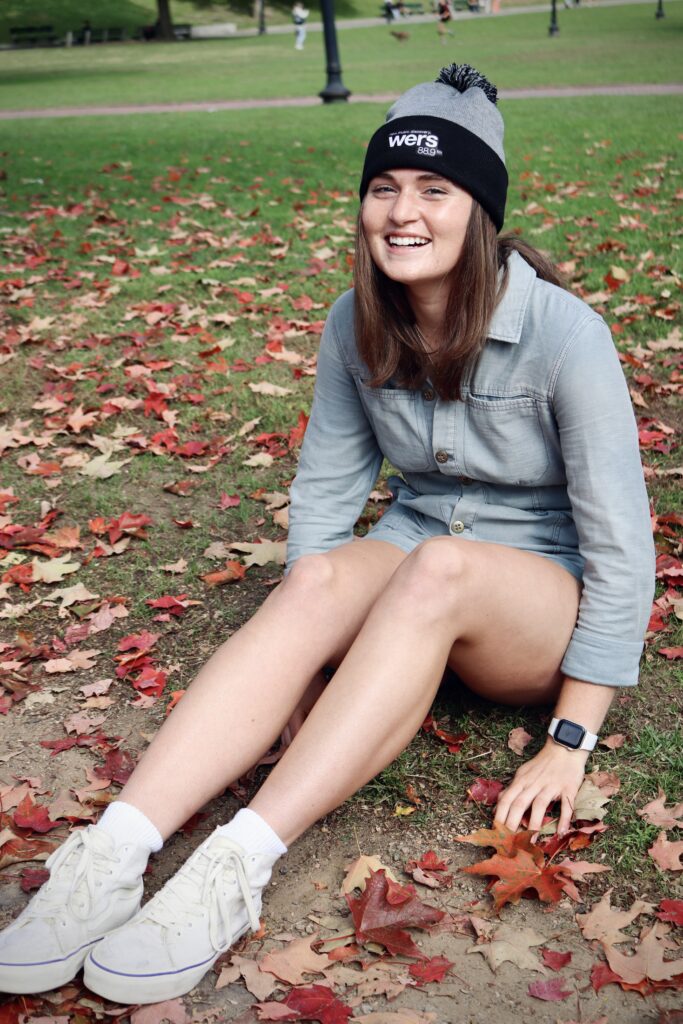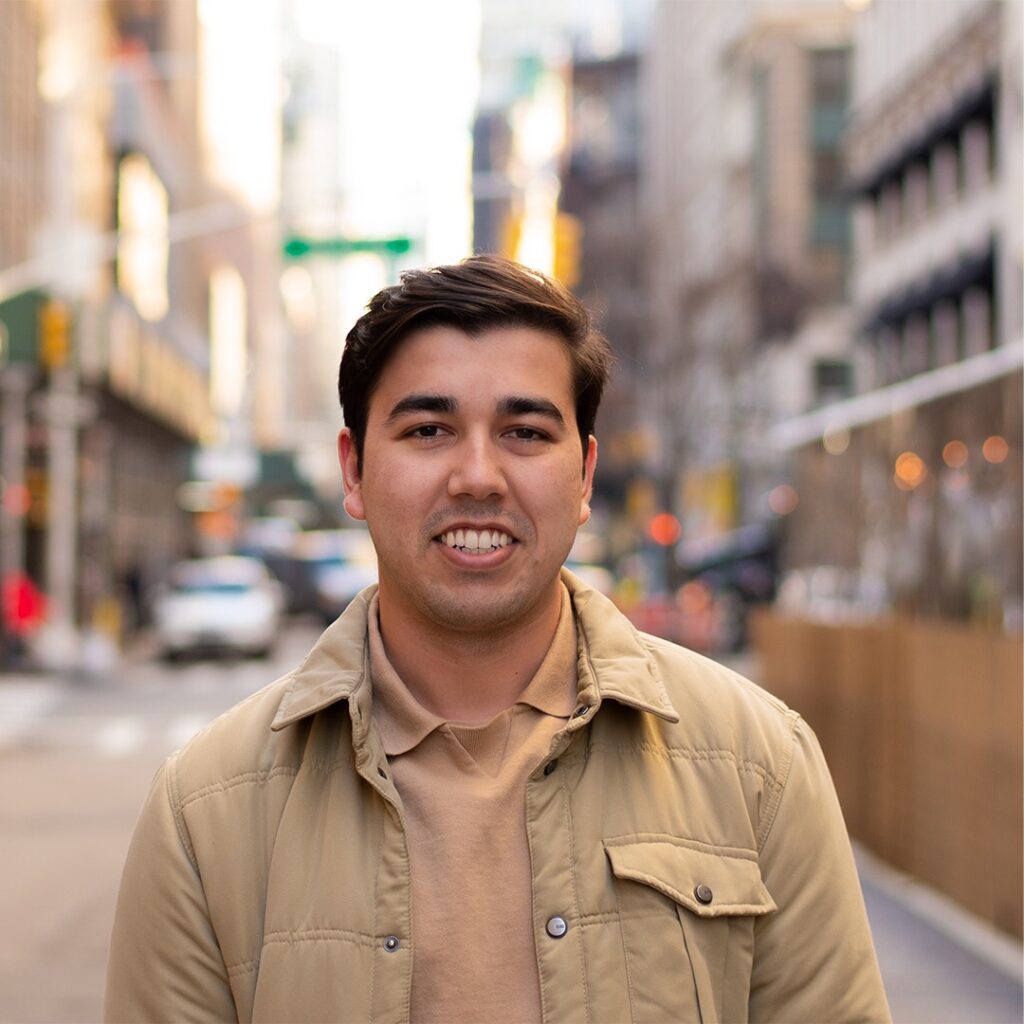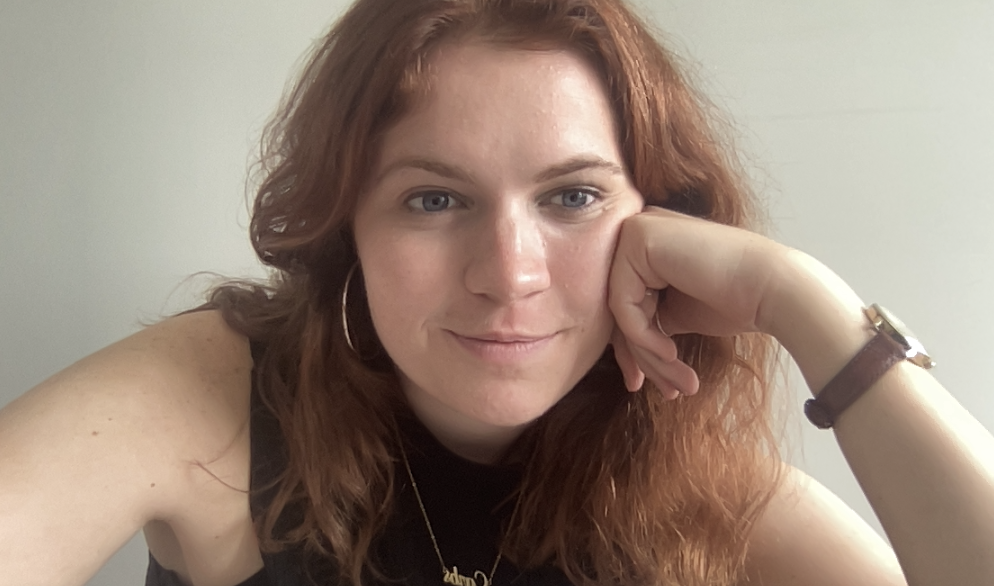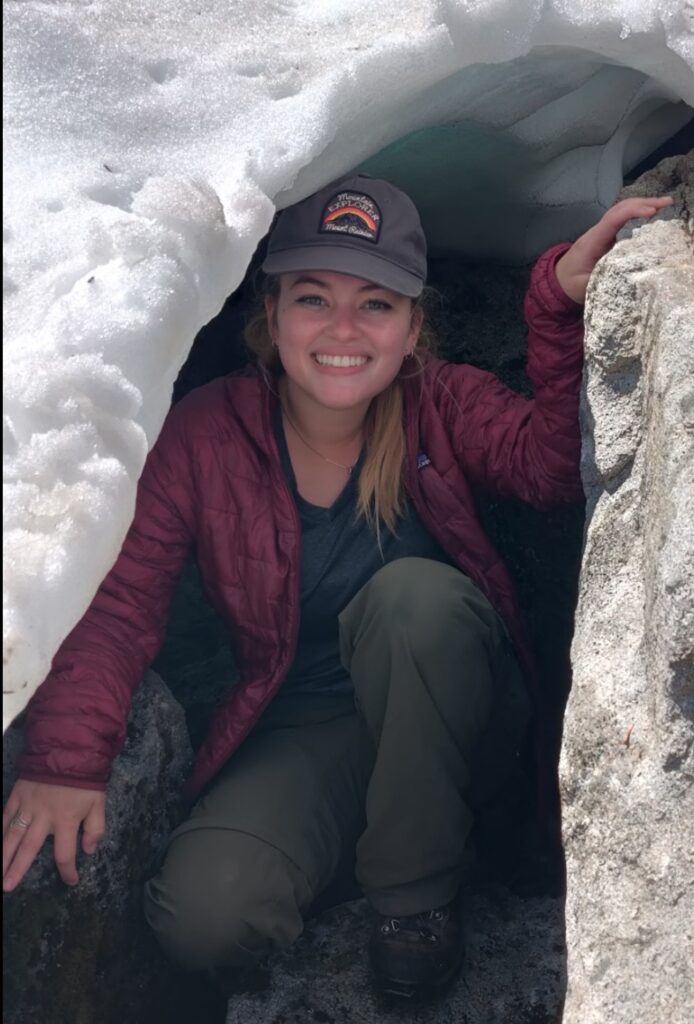Going Their Own Way: Designing Majors at Emerson
Emerson currently offers more than two dozen undergraduate majors within the arts and communication fields. But some students’ intellectual pursuits don’t fit neatly into any one of them.
Interdisciplinary Studies (IDS) students in the Marlboro Institute for Liberal Arts & Disciplinary Studies, and Individually-Designed Interdisciplinary (IDIS) students, who worked through the Academic Advising Center, design their own majors. Students use curriculum courses to create degrees in fields such as Science Communications, Prop Design for Film and Theater, and much more.
Some transferred to Emerson from Marlboro College, where everyone created their own course of study. Others originally enrolled within one of Emerson’s existing majors and felt the need to branch out from there.
Meet four graduating students who created their own major, and learn about their post-graduation plans.
Ainsley Basic (IDIP)

Pronouns: She/her/hers
Major: Integrated Creative Marketing
Q: Why did you want to create that major?
Basic: I decided to make my major because I realized I was much more interested in the creative side of marketing, such as writing copy and graphic design, so I wanted to develop a major that reflected that. I felt as if I were just to stay in the Marketing [Communication] department, I’d be limited from all of the other great creative classes that Emerson is known for.
Q: How will your major help you after college?
Basic: Taking classes from different disciplines and departments makes me feel as if I am a much more well-rounded candidate when applying for jobs and internships. I think it has given me a leg up, and many skills have already come in handy in my work experience for 88.9 WERS. I feel as if I can truly say I have experience in many of the skills employers seek, because my classes have covered such a wide range of topics that I would not have been able to if I had pursued a traditional marketing degree.
Even if I were lacking in some areas by not pursuing Emerson’s formal marketing degree, I think I have been able to supplement through extracurricular activities. As a part of Emerson Communications, the college’s student marketing agency, I have gotten invaluable real world traditional marketing agency experience.
Q: What are you planning on doing after graduation?
Basic: I am still figuring out what I am doing post-grad. Since I’m a student-athlete, I’m leaning towards graduate school and using the rest of my eligibility. I’m currently waiting to hear back from graduate schools.
Q: What is your dream job?
Basic: I am applying to graduate programs in Sports Management because I would like to specialize in my degree to have more of a sports focus. I would love to work in sports media marketing. My dream company would be any of the professional lacrosse leagues. I think the Premier Lacrosse League (PLL) has done a great job growing the game, especially the women’s game, through its affiliated Unleashed program. Working for the PLL or Athlete’s Unlimited, the professional women’s league would be my dream. If I weren’t working for a lacrosse-related company or league, I’d love to work for the WNBA or the NWSL.
Azat Jumadurdyyev (IDS)

Pronouns: He/his/him
Major: Economics and Media Studies
Q: Why did you want to create that major?
Jumadurdyyev: I decided to create my own major because I wanted to have flexibility and take classes according to my interests. Another reason I wanted to pursue a self-designed degree was that I wanted to explore different disciplines and develop different skills that could be useful in the “real” world.
Q: How will your major help you after college?
Jumadurdyyev: In my opinion, my major prepared me to be more analytical, strategic, and resourceful. I believe that these attributes are essential to be successful in the workforce where everything is now fast-paced and data driven.
Q: What are you planning on doing after graduation?
Jumadurdyyev: I will be working for a marketing agency to gain some professional experience and get ready for a graduate school.
Q: What is your dream job?
Jumadurdyyev: My dream job is where I can be analytical as well as creative (e.g. strategist, media analyst, brand analyst).
Molly Reeves (IDIP)

Pronouns: She/her
Major: Prop Design for Film and Theater
Q: Why did you want to create that major?
Reeves: I started out in VMA, and in my sophomore year I discovered my specific love for props. In student theatre projects, I specifically made props. I got to work with swords and puppets, and that encapsulated so much of what props is and I wanted to focus on this path. There is a basic-level theatre props class, but you have to be a Theatre major to take them.
Creating my own major enabled me to take it and other classes. I had to get approval, and they saw the correlation between classes and my major.
Q: How will your major help you after college?
Reeves: I want to work on props for blockbuster movies. Usually there’s a prop van, and I want to be in there. I want to be crafting my own props. Maybe I’ll make the next light saber. The possibilities are endless.
Q: What are you planning on doing after graduation?
Reeves: I’m coming back to Boston to say goodbye to Boston, and then staying out in LA indefinitely and trying to work those Emerson connections, trying to get a job on set. The alumni network is powerful, but we’ll have to see how powerful it is this time around.
No one goes to Emerson for props. I’m interested to see if alumni went the props route, or if they know people in props.
Q: What is your dream job?
Reeves: I would absolutely die if I worked on Marvel movies, and the Disney adaptions like the live action Cinderella.
Regina Trevathan (IDS)

Pronouns: She/her
Major: Science Communications
Q: Why did you want to create this major?
Trevathan: Originally, when I was attending Marlboro College, I had more of a focus on animal sciences. And I wasn’t really sure how specific I wanted to get with animal science.
I found myself studying horses a lot. Then the transfer happened, and they made it clear that Emerson didn’t have a science program [on] par with what I was used to. I took two straight years of nothing but science at Marlboro. I had been interested in communications. I’m a very communicative person. I took a couple of communications classes, and wondered, ‘Is this something I can combine with my previous science experience?’ From doing research I learned that science communication is a field and its actually heavily desired. And it has recently kind of been a controversial topic, of whether scientists should have a background in communications.
Scientists need to communicate and present their work. Bill Nye is heavily into science communication, and he has an educational teaching background. Within taking a couple of classes, I realized this is something I was pursuing the entire time while pursuing science.
Once I came to Emerson and took communication classes it became a no brainer that’s what I would specialize in.
Q: How will your major help you after college?
Trevathan: A lot of people in the science field are looking for communicators, writers for educational programs, websites with science-specific information. I’ve been looking at working in the parks system. I’ve been a Girl Scout for 13 years, camping is in my family, and it’s what I like to do recreationally. I want to work potentially with animals or national parks in some capacity.
I’ve done the veterinary route. I was a Level 1 certified tech during my senior year of high school. I learned veterinary work was not necessarily what I want to do.
I love working with animals. Before the pandemic, I was supposed to go to Iceland and study the half-feral horses. They aren’t feral during the winter because they can’t survive on their own. There’s a dramatic increase in testosterone levels during the feral months. I was going to be in Iceland to test testosterone levels when they were dropping for two weeks. It’s understood, but understudied. I was also supposed to work with bush fire victims in Australia out in the middle of nowhere – wallabies, sugar gliders, and smaller marsupials. That’s in the realm of what I want to do. I’d like to do rehabilitation work someday, and my communication background will give me a leg up.
Q: What are you planning on doing after graduating?
Trevathan: I’m going back home to Texas. I’m giving myself a break because I’ve been very ‘go, go, go,’ and going through a lot of changes during college. My mom and I are taking a trip together in June. When I come back early June, I’m going to start applying for jobs and potential internships. I’m really not limiting myself to an area or region. I’m open to going all over.
Q: What is your dream job?
Trevathan: I get asked that question so frequently. I feel like my answer changes. My automatic response is park ranger. I’ve always had a lot of respect for park rangers. I can really see myself doing that job and really loving it. I would love to work at an animal rehabilitation center. It’s right up the alley of what I’ve learned and working with people, educating the public, and working with an ecosystem. I’m constantly seeing positions and jobs in this field that sound like the coolest thing ever.
Categories